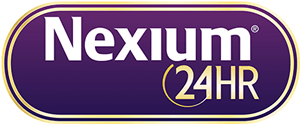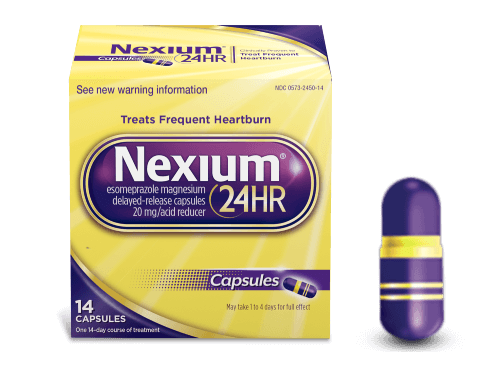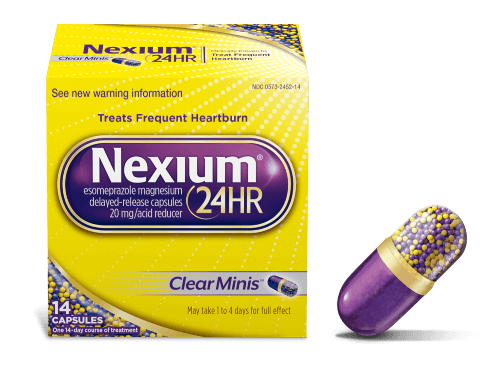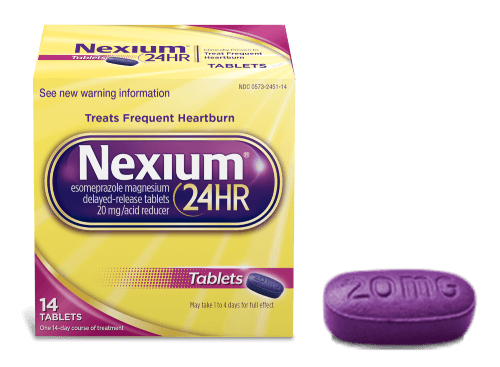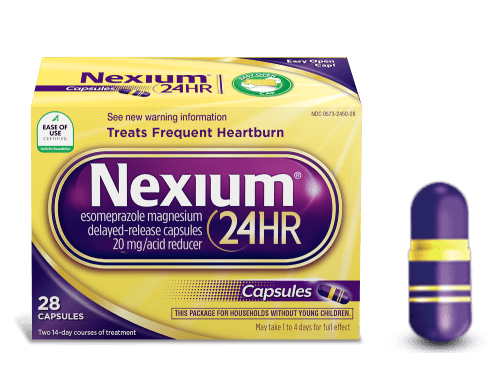Not all heartburn medicines are the same. Two major types of heartburn medication are proton pump inhibitors (PPIs) and histamine blockers (H2s), which are two types of medicines that decrease and suppress stomach acid.1,2 Learn how each of these medications work, their effectiveness and duration of action and whether their potential side effects can further affect your digestive health.
What Are Proton Pump Inhibitors?
Proton pump inhibitors target and reduce the amount of acid that your stomach produces.1 While you need stomach acid to break down food so that you can fully digest it, too much stomach acid can lead to digestive issues such as acid reflux, heartburn or gastroesophageal reflux disease (GERD).1 Acid reflux happens when stomach acid backs up into your esophagus, irritating and potentially damaging its lining.1
In addition to treating chronic acid reflux, prescription PPIs can also treat peptic ulcers that can arise from acid reflux and allows your esophagus to heal from acidic damage.1
PPIs treat these conditions by blocking an enzyme known as hydrogen-potassium ATPase.1 This enzyme is a proton pump, and PPIs prevent it from completing the chemical processes needed to make stomach acid.1
What Are Histamine Blockers?
Histamine blockers, also known as histamine 2 receptor agonists or H2 blockers, also decrease the amount of acid produced by the stomach. However, H2 blockers operate differently than PPIs by targeting histamines instead of proton pump enzymes.3
Histamines are chemicals released by your immune system, and when they bind to protein receptors, they contribute to various functions within your body.4 H2 receptors reside in your stomach, and they are responsible for generating stomach acid.4 H2 blockers create obstacles for these histamines in acid production.3 H2 blockers bind to H2 receptors and interfere with gastric acid production and secretion.3
How PPIs and H2 Blockers Compare
The most common form of PPI available over the counter (OTC) is a drug known as esomeprazole.1 Available as tablets or capsules, medicines containing esomeprazole should be taken 30 minutes before the first meal of the day.5 Furthermore, side effects from over the counter PPIs and may include minor issues such as headache, diarrhea, constipation or nausea.5
If you have a chronic condition related to excess stomach production, you should consider prescription PPI medications instead of H2 blockers because they are better for long-term treatment and are more effective at treating chronic conditions such as GERD.1,2 For 24-hour protection against frequent heartburn (heartburn occurring two or more days a week), try Nexium 24HR capsules, which has esomeprazole as its active ingredient. Nexium 24HR stops stomach acid before it starts, giving you all-day, all-night protection from heartburn.
Source Citations:
- Proton Pump Inhibitors. Cleveland Clinic. https://my.clevelandclinic.org/health/articles/proton-pump-inhibitors/. Accessed 9/25/2024.
- H2 Blockers. Cleveland Clinic. https://my.clevelandclinic.org/health/articles/h2-blockers/. Accessed 9/25/2024.
- Histamine Type-2 Receptor Antagonists (H2 Blockers). National Library of Medicine. https://www.ncbi.nlm.nih.gov/books/NBK547929/. Accessed 9/25/2024.
- Histamine. Cleveland Clinic. https://my.clevelandclinic.org/health/articles/24854-histamine/. Accessed 9/25/2024.
- Proton pump inhibitors. MedlinePlus. https://medlineplus.gov/ency/patientinstructions/000381.htm. Accessed 9/25/2024.
